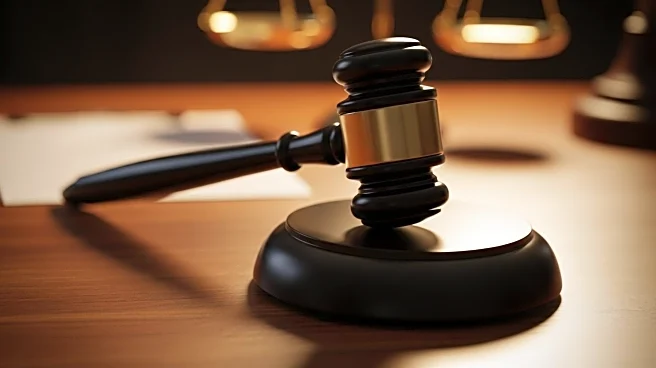What is the story about?
What's Happening?
A federal judge has issued an order preventing the Trump administration from deporting Kilmar Abrego García, an immigrant and working-class father, to Uganda. This decision follows Abrego García's release from a Tennessee jail and subsequent detention by Immigration and Customs Enforcement (ICE) during a routine check-in in Baltimore. The judge's ruling comes amid legal challenges against the deportation, with Abrego García's attorneys arguing that the deportation would hinder his ability to prepare for an upcoming trial in Tennessee on human smuggling charges. The case has sparked protests and legal debates, highlighting the administration's controversial immigration policies.
Why It's Important?
The judge's decision to block the deportation of Abrego García underscores the ongoing legal and ethical challenges faced by the Trump administration's immigration policies. This case highlights the tension between federal authorities and the judiciary, as well as the broader implications for immigrant communities in the U.S. The administration's approach to deportations has been criticized for targeting individuals without criminal histories, raising concerns about human rights and due process. The outcome of this case could set a precedent for future legal battles over immigration enforcement and the rights of immigrants facing deportation.
What's Next?
An evidentiary hearing is scheduled for October 6, where Abrego García's attorneys will present their case against the deportation. The Justice Department has indicated compliance with the judge's order, although it disagrees with the decision. The case is expected to continue through the judicial system, potentially influencing future immigration policy and enforcement practices. Stakeholders, including immigrant advocacy groups and legal experts, will be closely monitoring the proceedings and their implications for similar cases.















